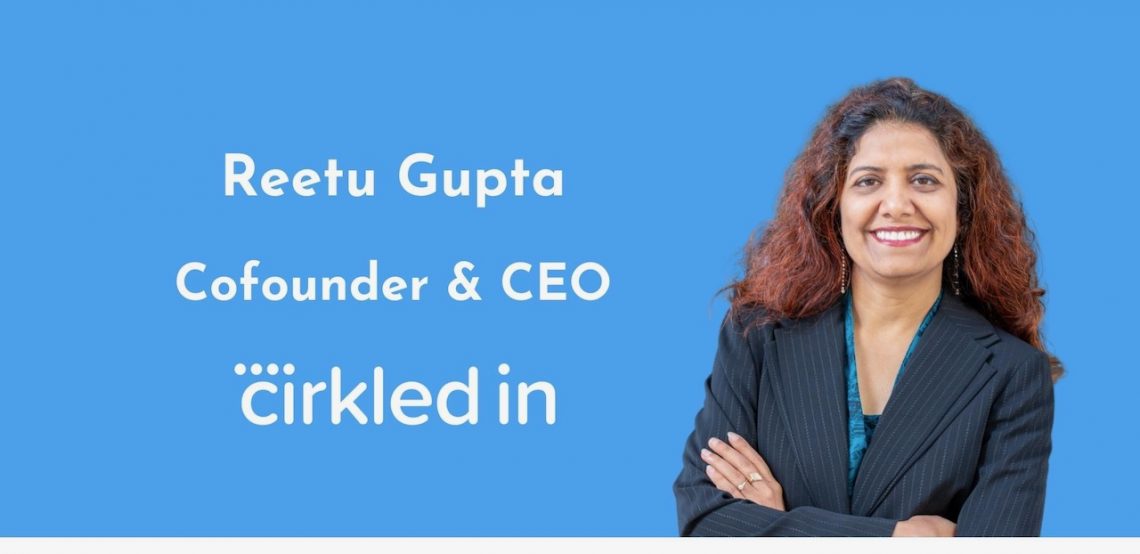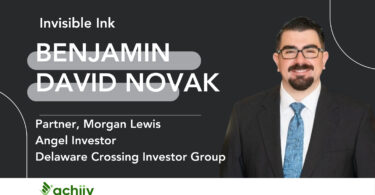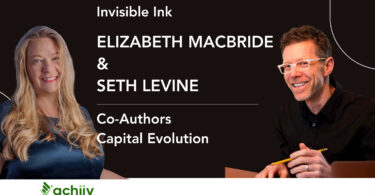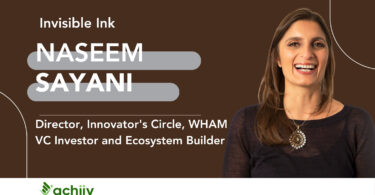About
Reetu Gupta is Co-founder and CEO of Cirkled In – a modern, secure, and youth-centric profile platform for Gen-Z students to showcase themselves holistically and for recruiters to find the best-fit candidates. Reetu is a marketer, engineer and entrepreneur at heart who bridges the gap between technology and customer needs.
Growing up in India, Reetu was influenced by Nelson Mandela and Mahatma Gandhi, wanting to better the world and leave a legacy. Helping her mom run an elementary school, education went deep into her DNA. She believes that Education is the most powerful weapon to change the world and knows that this 100+ year old industry is ready for disruption.
Before Cirkled-In, Reetu spent 20 years in corporate America from startups to Fortune 50 companies. Reetu earned her MBA (Valedictorian) from UW and MS and BS from NIT, India. With Cirkled-In, she hopes to leave a lasting legacy in the field of technology and education. Reetu received Stevie’s “Female Entrepreneur of the Year” award in 2016. She is an avid speaker on the topics of “Education for all”, and “Women Equity”.
Summary
How can you tell if YOUR burning problem is a good candidate for a startup? How do you know when it’s time to quit your job and jump in full-time? What do you do when you’ve poured years into your startup and there’s still no traction? How do you get angel investors to open their checkbooks for a category-defying business?
In today’s episode, engineer-turned-entrepreneur Reetu Gupta answers all these questions and more as she describes her journey to make CirkledIn the LinkedIn for the next generation.
Episode highlights
- Finding business ideas in the midst of your problems
- How to tell if your idea has legs
- How to make the risky leap from a cushy corporate job
- What to do when years of effort don’t bear fruit
- Nonobvious pricing secrets
- How to mentally prepare to fundraise as a woman of color
- How to convince angel investors to write that check
- How to find out who your real customers are
- Being a South Asian woman entrepreneur – the good and the bad
- How to get out of your own way
- How to avoid regrets in a journey full of uncertainty and risk
Links & Resources
Cirkled In – the company Reetu founded
SXSW – the tech conference
Mark Cuban – entrepreneur and investor
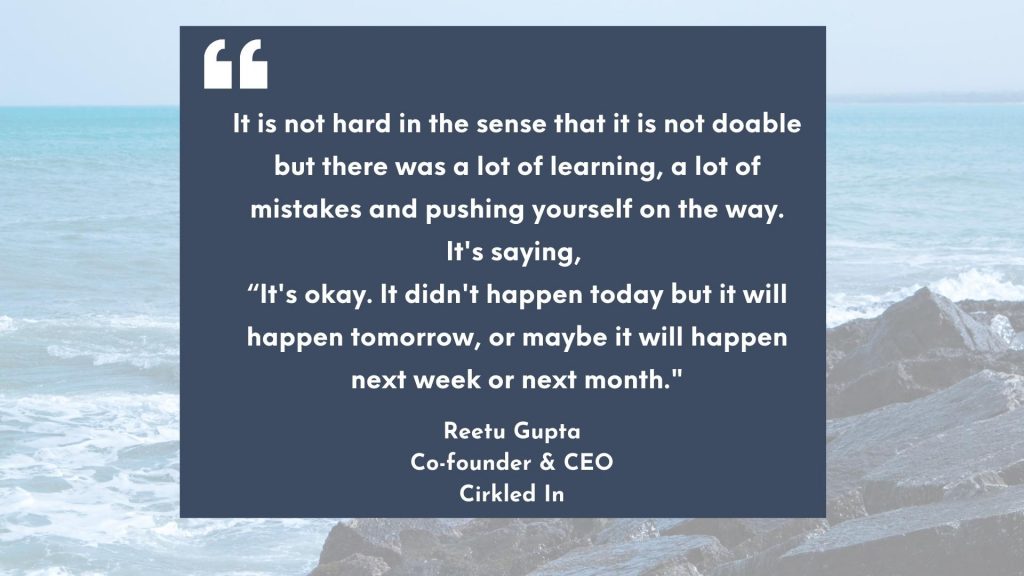
Interview transcript:
Shubha Chakravarthy: Reetu — Thank you for joining us on this podcast today. We are really delighted to have you!
Reetu Gupta: It is exciting to be here.
Shubha Chakravarthy: You are the founder of Cirkled In — what does the company do?
Reetu Gupta: Cirkled In is a young professionals’ platform for Gen-Z youth. It gives them the opportunity and power to showcase themselves holistically and connect to the best fit colleges and employers. Think LinkedIn but made for Gen-Z youth.
It is for high school and college students to showcase their strengths and talents, their passions and interests and help connect them with the best fit colleges, best fit internships, jobs, and anything and everything in between.
The idea is that it is actually built K through the 16th grade and they can carry it all the way to college.
We already have 7,000 college and trade school databases on Cirkled In for high school students to find. Our next step is to bring in internships and jobs onto this portal and bring employers so that they can come find their interns, their part-time workers as well as fresh graduates out of college.
Then students get to carry that profile with them. That data stays with them. That’s one of the value propositions of Cirkled In.
Shubha Chakravarthy: What gave you the idea and when did you start thinking about making this a real business?
Reetu Gupta: The idea came from a personal pain point, actually. I have two kids and my whole career was in technology. I grew up in technology. I can say that I took it for granted and many years ago, when my daughter had applied for something it took us three weeks to put that application together.
Even then we could not showcase who she was because she is very passionate about medicine and there was no way to show a club she had been a part of, volunteering she had done, or the science project she had made.
It was very frustrating, partially because we didn’t remember many things she had done. With two kids, it is hard to remember everything.
Secondly, there was no easy way on that application to say — here is who she is. So, at that time I thought — you and I have LinkedIn, there must be something for kids?
What I mean by that is that it is secure and it is for their activity. It is not asking them patents on LinkedIn, but asking them about sports and music and volunteering and something that is user-friendly. We didn’t find anything and being an engineer and a marketer — and my own customer, I went, “Wow, that is a billion dollar opportunity.”
And I jumped on it.
Shubha Chakravarthy: What are the first days like, walk us through, you have the idea and you are burning with a fire to make it happen. What happens next?
Reetu Gupta: Oh God. Long days and long nights!
First off — the decision is also not easy, right? Before you say, “Okay, I’m quitting”, there’s a lot that goes on before that and if it is not so, then that is wrong. You want to make sure that you do your due diligence. I was working in a Fortune 50 company and I had really good job that you will have to be crazy to quit and do what I did. I still did it.
I came up with the idea and then all this noodling started happening in my mind.
Also, one thing I was very conscious of were are my own biases. The idea started with education and I’m thinking, “Am I the only Asian mom thinking like this? Is that thing kicking into me? My stereotyping is saying — education is the most important thing in the world!”
I wanted to make sure that it is not just me who is the customer of my product and my business. There are other families and other students and other parents who are interested.
So, right off the bat, I actually interviewed a hundred parents as I wanted to make sure that it is not just me thinking this idea is needed.
I was ready and I was very diligent. I remember this spreadsheet I created about the demographics of my survey population, everyone from elementary school and all the way through high school, everyone from low income to high income groups and from different races. I put all those parameters in my list and I interviewed a hundred parents.
Shubha Chakravarthy: How do you find these people and how did you get them to say yes to what I imagine will be very deep questions?
Reetu Gupta: First, they were not deep questions and second, we were submerged in that market! Our kids were in school. It didn’t take much.
I started with my next door neighbor and I said, “Hey Mia! Can I have 20 minutes of your time?” She said, “Yes, absolutely!” Then I said, “Hey, can you introduce me to two more people that you know?” That is how the chain reaction started. I utilized every avenue I could find to get those hundred people.
So, this was my due diligence on the market and on the technology. “Can we do it? What does it take?”
We had two startups before this that we had done as side hustles and one of them was on data. We once got a cease-and-desist letter from Craigslist because we were using their data. So, lesson learned, we needed to make sure that the platform we were building was user friendly, very secure, and still very much accessible when it comes to data. So, we worked on what our priorities should be and what the product should look like.
Shubha Chakravarthy: Were there any inner challenges or any inner hurdles you had to overcome? How did you get through that process?
Reetu Gupta: So, I had the education as I grew up in engineering. Then — I got the business experience. But none of that can prepare you for entrepreneurship, honestly.
So, you have skills, you have check marks, you have the education and the diplomas and the degrees but there is still a lot that goes on. I will segment them in two groups.
When you talk about internal, that’s actually a positive emotion. If you don’t have that then there is no need to change anything. Your internal feelings say that you need to do something different than what you are doing today. That in my case was positive energy and that is what gives you the kick in your rear that you need every once in a while and also the strength to go through hard times that you come across in this journey.
The second part is your hard skills. Do you know how to get those resources to make it happen?
Corporate America serves everything to you on a silver platter, whereas as an entrepreneur, you have to collect every single resource that you need to make your dream a reality.
That was a hard process. It is not hard in the sense that it is not doable but there was a lot of learning on the way, lot of mistakes and pushing yourself on the way, saying, “It’s okay. It didn’t happen today but it will happen tomorrow, or maybe it will happen next week or next month.
Shubha Chakravarthy: Talk to us about how you came up with a business model. How do you figure out where you are going to make your revenue? Where did the financial projections play into this?
Reetu Gupta: The business model evolved over time. We have Cirkled In 1.0 and Cirkled In 2.0.
We started Cirkled In 1.0 thinking we will sell it to schools and we did not even have college on our radar at that time. We said, “We will build a product. It is a private network for each school.” You will have students as the foundation and the teachers, counselors, and the organization with dashboards giving you the data analytics.
We wasted two years and nothing happened. The only things that happened were a hundred thousand miles were added on my car and we had less than 3,000 students in two years.
In 2017, I was actually giving a talk on South by Southwest and Mark Cuban was there as a speaker. Mark gave a talk and in his talk he spoke about companies that are data AI and ML based and how in the next five years only those will thrive.
A light bulb went off in my head and I thought, “I’m sitting on this billion dollar idea and I’m waiting for a K-12 system to adopt us. That’s stupid.”
I came back home and went to the drawing board. I redid the whole marketing strategy and the whole business model. Other than the product, everything changed. So, it was already a big pivot for us. I put that new strategy in front of investors and they liked it. They could see the potential and we raised half a million dollars.
So, what we decided to do is go directly to the students. It was a pain point for students and we could bring colleges on the other side and make them match. So, we launched in 2018 — with a direct to student model and they just took off.
To build a platform like Cirkled In, you need funding. Either you go IPO or you perish. We are building that open system. That was the business model. Our funding with angel investors is what was paying the bills.
We were very frugal. I come from a very humble beginning in India. It is funny when you don’t have very much growing up, you become very frugal. Even when you have a six figure salary you don’t spend it. I don’t have the courage to spend the money, honestly.
Shubha Chakravarthy: So what about the revenue side? Can you talk about how you figured out and tested or validated your revenue model?
Reetu Gupta: We launched the college side, what we called CRP — College Recruitment Platform at the end of 2019 and the idea is that the colleges will pay to use Cirkled In to find the best fit candidates and with that they’ll meet their enrollment goals.
They will improve their retention, graduation, and employability all the way through because right now the the Higher Ed industry is — believe it or not, 70% failure. So, the stats are mind numbing and the weird thing is most people do not even know about them.
Let me share some stats.
One — Colleges spend 10 billion+ every year to recruit their freshman class. 10 billion — with a B.
Two — their retention. 59% students come back to the same campus. 41% do not. Even though colleges spend $2,500 per recruit. So your CAC is $2,500 and your churn is 41%.
Six year graduation is at 60%. Will you ever go to a hospital where they say, “Your chances of walking out alive are 60%?” But we are doing that to our kids and sending them to colleges where chances of them getting a degree are 60%.
There is 20% Underemployment, 50% Unemployment, and then student debt is at 1.3 trillion. It’s all negative. All these stats.
I always say that in any other industry if I were to run a company like that, I would fail the very next day. Any other industry will die, but higher education does not.
Why? Because it is a public service. Because it is funded by the federal government.
Shubha Chakravarthy: It sounds like it was a relatively easier sell from a revenue standpoint when you went to the colleges. Was it?
Reetu Gupta: It is still never easy. It is easier, but not easy because the Higher Ed industry is not held to the same standards as corporate America.
Inertia is huge. “Sticking with the status quo won’t get me fired. Why should I try something new?”
It is not easy even though it is a very revolutionary idea. “Oh My God. I have 200 data points on my students, my candidates. I can figure it out!”
If you are an all boys college, please do not send flyers to my daughter. That is what is happening today, right? Cirkled In changes that.
So, with Cirkled In they can then target the students who are going to thrive on their campus. It is not just for them. It is for the students as well.
Shubha Chakravarthy: Can you talk about how you came up with a pricing strategy and a pricing model? What was the thought process behind it? How did you test it? Can you shed some light on this?
Reetu Gupta: As far as pricing is concerned, it is competitive analysis. It is funny as this was another learning point for me. When I came from business school and worked in the aerospace industry, which is a very process-heavy industry, there were these distraction minimizing requirements in the cockpit for the pilot.
So, anything that the pilot has to do, they should be able to do it in three clicks.
I put the exact same requirement in front of my engineering team. Anything a teenager has to do should be done in three clicks.
Why? — Because teenagers are not very different from a pilot in a high stress situation in the cockpit.
My pendulum was always oversimplifying things.
“How can I simplify things?” I thought, “We need to have three price points — good, better, and best. We entered into the industry and we found that they don’t understand that. They are used to having 6-8 different price points and 3-4 different ways of paying for that.”
It was pretty complicated. So, we had to follow the industry. We had to complicate our pricing because that is what they understand.
Shubha Chakravarthy: So all of this brings us to the 800-pound gorilla, which is funding. Can you share your fundraising experience ?
How did you pick whether to go the angel funding route, FFF, angel funding, or VC funding? How did that whole process play out? What was your experience?
Reetu Gupta: That question is a very long one and here is the worst part — there is no right or wrong answer here. I know companies that are successful with bootstrap and I know a bootstrap company that became a unicorn. I know another company that raised $120 million and two weeks ago it imploded.
First of all, funding is not a measure of success. Funding is only a means to the end, whatever your end is. Our end is for Cirkled In to be that de facto platform and funding is just helping us get there, hopefully. I always cringe when people say, “Press release! We got the funding!”
Great — but keep in mind that the work is just starting.
Having said that, fundraising is very difficult, especially for a woman, person of color, and all of that stuff. So, the thing is that you will have to be mentally prepared for that.
Shubha Chakravarthy: What does it look like to be mentally prepared? Did you have prior experience in the startup ecosystem? Did you have mentors to walk you through and say, “This is what will happen?” How did that play out?
Reetu Gupta: I had done one or two pitches in my previous companies. Just that, I never raised any money but I know living in Seattle that there are some very rich people. When I initially started, I was a little naïve.
I thought, “Everybody is going to love the idea. They are going to give me the check.”
So, when we started first versions of Cirkled In 1.0 — I started talking to investors at that time. In fact, I started talking to anybody and everybody, I became a networking junkie. I made so many connections.
It’s funny because recently my daughter was telling me that those were the days when Mommy used to smell like Starbucks because I spent my days in Starbucks meeting people — even though I don’t drink coffee!
I just did a lot of networking and I started talking to all these angel investors back then when we were working on 1.0. We did not get any money at the time.
Shubha Chakravarthy: What were some of the responses? Did they say we will get back to you and then they never got back? How did that play out?
Reetu Gupta: Angel investing is very different from VC investing. Angel Investors will usually respond. They usually do not ghost you because it is just an individual talking to an individual.
Having said that, they are not going to be completely honest and transparent because they know you are passionate about your product and about the idea. They are not going to come out and say — “Your baby is ugly.”
But then they will make up some things, “Oh, I’m not investing right now”, “Oh, this is not my space”, or “Once you have X number of users — then come back.”
I built connections with them over the years . I sent them end of the year updates, middle of the year updates, summer updates, stuff like that and kept them in the loop.
There were a few people who became sort of good friends with me and then when I put the next version in front of them with the new strategy. It was much easier because they had seen me over the last couple of years. They knew that I don’t give up and I work very hard.
Shubha Chakravarthy: It sounds like the angels, typically at least are people who have experience in the industry and have some non-financial connection for wanting to invest in an idea — in a startup. What about VCs? Was it hard to get in through that door?
Reetu Gupta: There are multiple factors. So, just for the record, we are not inside the doors of any VC building at this point. We have not raised money from VCs. We have raised from angels, super angels, and a couple of accelerators now. Not from VCs.
VCs invest other people’s money. It is funny because while they do invest in startups, they are very risk averse while investing in new technology. It’s a weird combo and when it comes to Cirkled In — it does not fit inside a box. We don’t match any pattern. I’m not white so I don’t fit in any of the patterns.
When it comes to Cirkled In, which is at the intersection of Ed Tech, HR Tech, Consumer SAS, and investors normally know only one or the other. They’re like, “Whoa, what do you mean it is at an intersection? I don’t know what to do with it! I don’t feel confident. I’m going to back off.”
The typical answer we hear is that — “Oh, you are too early.” This is all BS. There is an actual reason which is almost unknown to you.
Shubha Chakravarthy: It sounds like you are already aware of that and you are actually planning for the fact that you shouldn’t have to waste time and should use smarter or more efficient means to getting the funds you need. Is that a fair statement?
Reetu Gupta: Yes. This is what I meant by being mentally prepared.
It is like you are hiking up a mountain. You check the level of difficulty. It can be easy, medium, hard, or very hard. In this case, even if somebody tells you that, “Oh, fundraising is easy or medium hard”, and if you are a woman, person of color, not 20, creating this product that is starting in education, assume that your hike is going to be very hard and prepare for that.
Your runway should be longer. I always want at least 12 months of runway, no matter what, before you raise your next round of funds.
Shubha Chakravarthy: You talked briefly about customer and product. Are there any other aspects of product development for that particular market that you found different, surprising, or more difficult than you thought?
Reetu Gupta: We don’t consider our market to be colleges. Interestingly, we consider our market to be teenagers and that is the hardest market to penetrate. The funny thing is that we have cracked that nut.
Shubha Chakravarthy: How did you do that?
Reetu Gupta: Secret sauce!
We do have completely organic growth. Right now, for example, we have over 100,000 current high school students without a dime spent on ads or marketing. Our lifetime userbase is getting close to 700,000. We are doing something right. If you build a product keeping in mind your users then it is easier to sell that.
Remember, when you are selling, you are not just selling for the money — you are selling for their attention, their time, and their data.
Even though students today do not write a check to us, we still have to sell to them because they have million different options to spend their time on. Time is the currency. They are giving their time to us.
This is where it becomes a slightly category defining part at contributing to that. If we build a product for students and we can attract them to us, everything else will fall in place. So, our loyalties are to the students.
Students are the center of our circle and the “K” in our name — the kids are at the center of the circle and they bring the rest of the ecosystem together which includes schools, families, colleges, employers, trade schools, and nonprofit organizations.
We even work with boys and girls’ clubs and YMCAs. If we keep our eyes on the target, which is the students, and build a product for them, then imagine — the colleges will be knocking on our doors saying, “Hey, can we have those students? We want to connect with them because we have a program that fits their persona.”
Shubha Chakravarthy: You come from a South Asian heritage, if I’m correct. I share that with you and at least based on my experience, it is not a culture that glorifies either risk or ambition.
In your case, your journey requires a combination of both, risk and ambition. How has that played out? What advice would you have to give to other South Asian women entrepreneurs?
Reetu Gupta: The most important thing, no matter where you come from, is knowing your biases. That is one thing I really preach to myself many times.
For example, there are some good things and there are some bad things being from where I am from. The first thing was — excellence. I remember when I was a kid, I used to bring the report card home, which used to happen two times a year, half year and finals. On that day I used to hide behind the kitchen door when my dad came home.
Why? Because his first question was “Who is first in your class? Are you first?”
If I said “No”, it was a different conversation. If I said, “Yes”, then it was a normal conversation.
But I was never first. I was always second. Always. I always had to explain what I will do next to get to the first place in the next round. So, it was that striving for excellence beyond any measure, even though you may not be capable or you don’t think you are capable, but you are still supposed to do that again and again that proved to be in some ways good.
In other ways, it can be very harmful when you end up becoming your worst critic, which is what I have become, “Am I first? Am I doing the best I can? Am I where I should be?”
When I say “I”, it is not just I as a person, it is “I” as a CEO of a company. That becomes hard and I have to remind myself all the time to try harder in the next round.
Some people have told me, “You need to just get out of your own way. You are too hard on yourself.” It is both good and bad. If I think I could dilute just a little bit of my personality, it will be that, so I am not simply running for the best performance all the time.
Shubha Chakravarthy: Have you ever felt any self doubt or if this ever going to be successful or “Am I the right person? Do I have all the right skills”, or is it just, “No, it has got to be a problem and I have got to make it happen.”
Reetu Gupta: If I say that my answer is “No, no doubts”, then I’ll be lying. No entrepreneur can tell you that they never had self doubt.
There are so many ups and downs in an entrepreneurial journey. It is ridiculous. You can have your best day and your worst day all in one day — that too before lunch.
One thing I would say though is that I never doubted my skills. I may sound arrogant but no one can beat me in terms of hard work. I know I am smart. I know I can work hard. I know I don’t give up. So, I didn’t have doubts regarding my stamina of working and my smarts of working, but then I’d always doubts anytime I heard a “No” from an investor or a customer.
I’d think, “Oh, what did we miss? Why don’t they like us?”
As an entrepreneur you feel like you are a teenager and you want to be popular and you know how teenagers feel half the time — like, “Oh my God, I’m not good enough.” But for me, “Is my product is not good enough? It’s not good. Not there. Why are they not liking me?”
So, self-doubt is a part of the journey.
Shubha Chakravarthy: How do you get through that? How do you keep going and how do you address that?
Reetu Gupta: When you have eight meetings on your calendar and your first meeting goes shitty, you can’t just crawl back into your bed. You still have to do the next meeting.
The funny thing is that your next meeting could turn out to be the best meeting and then suddenly you could be high on a mountain.
Shubha Chakravarthy: So, you just keep going. As Winston Churchill said, “When you are going through hell, just keep going.”
Reetu Gupta: You can’t not work. You can’t pause. There is no time to pause in this journey.
Shubha Chakravarthy: A slightly different question — one of the things we hear, especially if you are out raising funds or dealing with the financing sector in any capacity, there is this presumed incompetence with numbers and financial projections.
Have you ever faced this, in terms of questioning or the line of questioning by potential investors or financiers? How have you dealt with that?
Reetu Gupta: Good and bad. This is what comes with excellence. I am a big time data nerd. I love Excel. So from day one, I had a very detailed financial model and I talk in numbers. I think in some ways I am like an investor in that sense and I needed that.
I think that is for every entrepreneur, not just for investors. Asking as an entrepreneur, “Are you on the right track? Does this path lead to a pot of gold at the end of the rainbow? If you are a company, do you have operational expenses? How and where the money is going? What is the P & L? Where can you cut the expenses if you have to?”
So, all that I needed to know was how far the half a million that we have raised would go.
I had projections from day one. I can talk about anything when it comes to numbers. In my latest model, believe it or not, I even had per square foot rent in Seattle in my projections.
Shubha Chakravarthy: I’m not surprised!
Reetu Gupta: My financial projections are like excel sheets with 15 tabs — including the cost of memory and number of machines needed on cloud to serve X number of students.
Shubha Chakravarthy: So just truly bottom up to say — start from the beginning and then build it all the way up to your top line numbers, whether it is revenue or costs and any of that other stuff.
It sounds like that there was no presumption of the fact that you didn’t know what you were talking about when you were talking to potential investors. That didn’t sound like an issue at all?
Reetu Gupta: Not for the numbers. Yes, there is always that they may be rolling their eyes in their head thinking, “She thinks she can get 2,000 colleges, we will see.”
That is different. They make out your assumptions, which will happen. But as long as you have clarity, you can say, “This is what I think I can do, and this is where we will be.” You can clearly articulate that. I think that is plenty for investors because they know there will be unforeseen things that will happen.
Who knew that COVID would happen? Did anyone plan for that? No, so, investors know that will happen and all they need to know is your numbers and if you have the problem solving and critical thinking in you so you can fix that. If you do then you will have the skills to turn things around.
Shubha Chakravarthy: Looking back now, where you are at, is there anything you wish you would have done differently from the beginning? Anything you would have said, “I wish I had known this.”
Reetu Gupta: No, I won’t even subtract one day from my life so far.
Shubha Chakravarthy: No regrets.
Reetu Gupta: No, that was one promise I made to myself actually, very early on.
Every decision I make is based on the information I know as of today, and as of today I did my best. I made that decision. Tomorrow, things will change. You will have more information and you will have different information. Does that make my older decision wrong? No, absolutely not. I did make the right decision at that moment.
Every decision is in the moment. If you go further down, things will change. You may have to pivot. You may have to change directions, but there should not be any regrets for anything you did. There is no way you would have known what will happen in the future to make a different decision in the past.
Shubha Chakravarthy: What advice would you give to somebody who is further behind on the path of entrepreneurship?
Reetu Gupta: I think there are two most important things in any founder’s journey. First is convincing yourself. Second is convincing the market. Convincing yourself is the harder part and that includes weighing lots of pros and cons on an Excel sheet.
You will lose your salary and taking a vacation in the Bahamas and having a big SUV and a big house, are ready to let go of that? That is going to mean seeing yourself in the rat race and then entering a different rat race.
So that is convincing yourself and making your family a part of that because no matter what you do, your immediate family will be impacted — good or bad, in either way.
Think hard. This is not going to be an easy journey. Entrepreneurship is not for the faint of heart by any means.
Shubha Chakravarthy: So, what is the one thing that keeps you going? No matter how hard things are, what is that one specific thing?
Reetu Gupta: My ultimate mission, my ultimate definition of success, is my legacy. Cirkled In is going to be my legacy and I’m working on my legacy.
Shubha Chakravarthy: What does it look like for your wildest dreams to come true and then there is one moment which to you encapsulates all that you have succeeded? What would that real life moment be?
Reetu Gupta: Actually, there are two. One is that we are ringing the bell on New York Stock Exchange. Second is the day I die, there are millions of people who are crying.
Shubha Chakravarthy: All right, I’ll take that! Thank you very much this has been amazing and I really appreciate you sharing your thoughts today.
Reetu Gupta: Absolutely, thank you for asking the questions once in a while. It is good to stop and reflect back on the journey. Thank you for selecting me for that!

